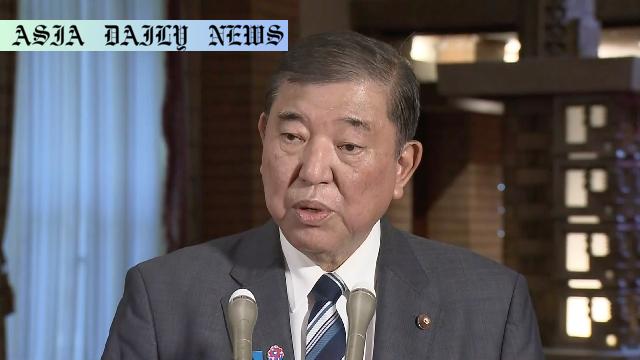Safety: Japanese PM Ishiba directs ministries to ensure Japanese citizens in Iran are protected amidst rising tensions.
PM Ishiba prioritizes safety of Japanese citizens in Iran.
US attacks on Iran’s nuclear sites escalate tensions globally.
Efforts to monitor and gather vital intelligence continue.

Background on the Situation in Iran
The recent US military action targeting three nuclear sites in Iran has triggered international unrest, raising concerns about regional stability and the safety of foreign nationals. Japanese Prime Minister Shigeru Ishiba has responded promptly to the situation, emphasizing the protection of Japanese citizens currently residing or traveling in Iran. This directive comes amid fears of retaliation and the potential for further escalation in the region following the strikes.
Officials from Japan’s defense, foreign, and other ministries convened with the prime minister to strategize and align on protective measures. They are tasked with maintaining close contact with allied nations, collecting intelligence, and ensuring the timely evacuation or protection of Japanese citizens as needed. The prime minister’s decisive actions underscore his administration’s commitment to safeguarding its people in volatile international scenarios.
The Importance of Resolving Tensions
PM Ishiba described the situation as one that demands immediate resolution, urging global cooperation in de-escalating tensions. Beyond the immediate safety measures, the prime minister stressed the critical need to prevent the proliferation of nuclear weapons. His remarks point to Japan’s history and commitment to nuclear non-proliferation, particularly as a nation that has experienced the devastating consequences of nuclear conflict first-hand.
Given the complex dynamics of the Middle East, Japan’s role remains pivotal in supporting peaceful dialogue and diplomatic measures. Japan’s influence as a non-confrontational actor provides a unique opportunity for contributing to constructive discussions between nations involved in the conflict.
Steps Japan is Taking to Ensure Safety
To protect Japanese citizens in Iran, the government is implementing several key measures. First, they have established a robust communication system that allows expatriates and travelers to remain informed about ongoing developments. This ensures they have access to updated, verified instructions in case of emergencies. Additionally, Japanese embassies and consulates in nearby regions have been put on high alert and equipped with extra resources to provide necessary assistance.
Another critical measure involves working closely with allied nations and international organizations to monitor regional activity and strategize on rescue and evacuation efforts if required. Ishiba’s government has appealed to its citizens in Iran to exercise extreme caution, avoid high-risk areas, and remain in continuous contact with Japanese officials stationed abroad.
Global Implications of Japan’s Stance
Japan’s response to the current crisis highlights the broader implications of international security and diplomatic cooperation. By calling for calm and expressing a strong stance against nuclear proliferation, Japan reminds the global community of the long-term consequences of unchecked military conflicts. The nation’s actions and appeals may serve to influence other neutral countries to join a collective effort in supporting dialogue and reducing further international tensions.
Given Japan’s position as a respected peace advocate, this crisis provides an opportunity for the country to take an active role in shaping diplomatic narratives moving forward. Its balanced approach between advocating for its nationals’ safety and calling for prevention of nuclear development sets a critical standard for others.



Commentary
The Importance of Protecting Citizens Abroad
The safety of citizens living or traveling in foreign nations is a top priority for governments worldwide. This is particularly evident in situations like the current tensions in Iran, where Japanese nationals may find themselves in vulnerable positions. Prime Minister Ishiba’s swift instruction to ministries to ensure the security of Japanese citizens reflects proactive leadership aimed at mitigating risks before they escalate further.
Ensuring safety abroad is no small task and requires a multi-layered approach involving international collaboration, intelligence gathering, and on-the-ground preparedness. The Japanese government has historically been efficient in securing its citizens during crises, and their reputation for responsiveness is reinforced by the current measures. For nationals in volatile regions, such readiness provides a critical layer of reassurance.
Japan’s Role in De-escalating Global Tension
In addition to its protective measures, Japan’s emphasis on de-escalation and nuclear disarmament offers a constructive pathway amidst global unrest. Its comments and actions not only highlight its concern for safety but also serve as reminders of the nation’s staunch advocacy for peace. By championing the importance of diplomacy, Japan positions itself as a role model for nations seeking non-violent solutions even amid complicated geopolitical crises.
When nations adopt a calm yet firm approach, they can often serve as influential pacifiers in such situations. Japan’s actions promote a much-needed reminder that peace is a collective goal achievable through cooperation and consistent advocacy against weaponization.